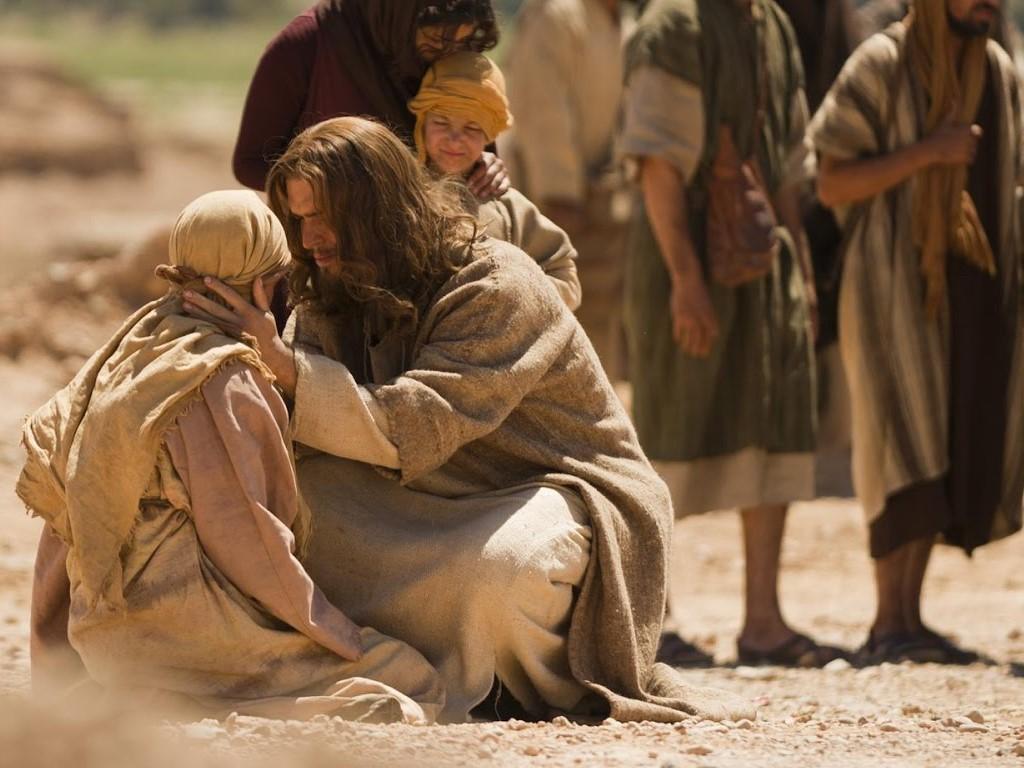Veritas - From the APRIM

Veritas - From the APRIM
God is Love
In the last newsletter I wrote about Jesus coming so we could have life, and have it abundantly, as per John 10:10. This week I make reference to John 4:8 – “Whoever does not love does not know God, for God is love.”
As I listened to our 2018 Dux, Duy Minh Vu Tran deliver his address at our Laureate Assembly on Monday, it occurred to me just how much Duy lives life to the full, gives and receives love, and as a result is as successful as anyone can be in the moment. Mr Simon Cobiac and I discussed our observations of Duy afterwards and recognised that, nested within this success, is a young man who is humble, grateful and hopeful (which are three ‘criteria’ for being in God’s Kingdom). He is also healthily competitive with others as well as possessing a strong internal drive. What is not obvious to people is the extent of his commitment to his faith life. He is a parishioner at Pooraka’s Our Lady of the Boat People Vietnamese Catholic Community and contributes his service to this community through the Youth Group. Many members of this community fled war and the anti-life philosophies of communism in the 1970s and 1980s, and did so by boat. The Australian government allowed them to settle here on humanitarian grounds, and Duy is an example of how this generosity has been repaid in abundance. In many ways, Duy is a manifestation of what Jesus came to achieve through the love of His words and actions. Duy loves life. He loves God. He loves neighbours. He loves himself through doing his best.
There is an apparently growing anti-life movement permeating the western world. Anti-life movements are nothing new, but there is a sense, perhaps propagated through mass media, headlines and sound-bites, that this movement has great momentum and is overwhelmingly strong. History presents times when anti-life philosophies influenced people and led them to hate life. Such times simultaneously present an absence of proper love.
We have heard the two great commandments of Christ: love God, and love neighbour. This is the basis of Christianity. However, let’s examine the full piece of scripture (Matthew 22:36-40):
36“Teacher, which commandment in the law is the greatest?” 37 He said to him, “‘You shall love the Lord your God with all your heart, and with all your soul, and with all your mind.’ 38 This is the greatest and first commandment. 39 And a second is like it: ‘You shall love your neighbour as yourself.’ 40 On these two commandments hang all the law and the prophets.”
Jesus was being set up with this question, and as always, the effort to trick Him was futile. Loving God and neighbour are intertwined here. The best way to show love for God is to show love to self, neighbour and all of creation. It may be unfamiliar to consider love of self as a way of loving God. This is not a selfish love, but instead a way of honouring the God-given gift of your own life. Moreover, successfully loving and honouring yourself makes you more capable of loving your neighbour. Duy is a fine example of this.
Just as important is the reference to “the law and the prophets”. Jesus was making it clear that love has rules – absolutely. I was recently asked a somewhat loaded question: “If God only loves, why do so many Christians describe the things that he hates?” The following was my response:
Don’t confuse permissiveness with love. Sometimes the right love is saying “no, that is wrong”. The right love is correcting. The right love is welcoming the prodigal. The right love is bringing the lost sheep back to the flock. The right love is telling the truth, even if it hurts. Correcting, forgiving, saving, honesty - that is love.
The devil hates. The devil tempts, leads astray, makes people think something so obviously wrong is ok (and can’t we find a myriad of examples of that nowadays - many in sexuality and gender issues) and then the misery that follows is met by the grinning devil with: “Oh-oh. Now, what did you do that for? Silly thing - you’re in trouble now. Don’t you just hate yourself?”
Search deep for the Natural Law that dwells deep in your heart. There you find a loving and patient God who is with you as you work hard to overcome the challenges of human frailty. That is salvation.
When Jesus refers to “the law”, it is Natural Law to which He refers. For the audience hearing Jesus’ reply, they would have thought of the 613 commandments of the Torah (although most of us now only know of The Ten Commandments). Jesus was endorsing these with His commandment of love, because He perfectly understood the parameters of perfect love. Natural Law is essentially the examination of the truth written deep into the hearts of every human. It is what we attempt to deny when we want to bend reality (ie. lie) to justify a wrong.
This has taken a nasty twist in this post-modern and secular world. People who know something is wrong (but argue that same ‘something’ is a right) seem to think that parliament can make it correct. As if the arbitrary nature of human laws can somehow override the eternal truth of God’s (Natural) Law! There is some real evil in this; removing the traditional impediments of human law (which were largely based on Christian values) to allow increasing levels of immorality paves the way of the path to misery. This misery is the metaphoric fire of hell – the one that accompanies hate of self and the absence of proper love.
Today I read that the Queensland government are beginning the process of introducing euthanasia laws, similar to those passed in Victoria in 2018. This is a part of the anti-life movement. In South Australia, a Greens MP is in the process of introducing abortion law reform[i]. This is also a part of the anti-life movement. For the latter, the reforms include neglecting a ‘live birth’ so they can die. It is interesting that some of the laws passed in recent years are described as “progressive”, as is this proposed reform. Ironically these wrongs are labelled as “rights”. With respect to “progressive”, infanticide was something we did progress from about 2000 years ago. So which way do they want us to progress – forward or backward?
The comparisons between love and the absence of love (or even hate) need to be clear. A terminally ill person, or an old person, or any person for that manner, can be loved. They can love. The time leading to a natural death and suffering provide an opportunity for an enhancement of love. Killing does not. Similarly, a baby, pre- or post- birth, gives unconditional love and provides an opportunity for parents to do the same. What would the baby’s death provide in terms of love? This is where Jesus in John 4:8 applies: “Whoever does not love does not know God, for God is love.”
Now, I must stress that the Church recognises the difficulty present in suffering, abandonment and concern, and people facing difficult decisions must be loved, and not condemned. The best example of this comes from Christ through the Woman Caught in Adultery (John 8: 1-11). Men were calling for her stoning, and Jesus teaches them away. He then says to her: “Woman, where are they? Has no one condemned you?” 11 She said, “No one, sir.” And Jesus said, “Neither do I condemn you. Go your way, and from now on do not sin again.” The image shown to represent this story presents Jesus with the woman at her level, not above her. Jesus is with all that suffer from disaster, sin or disorder, no matter what the suffering or whether it was even self-inflicted. Jesus’ example of love is not permissive. However, it is forgiving and hence liberating and life-giving.
St Dominic’s calling emerged from encountering an anti-life movement. The Albigensians he encountered believed all physical matter was evil, including life. Theirs was a miserable anti-life movement. St Dominic did not condemn them. Instead, he preached the Gospel – the Good News of Christ - being that life is good and can be lived abundantly through following Christ. He did so with love and adherence to the truth. He converted many of the Albigensians, and the Order of Preachers emerged as a result of his close alignment with the ways of Christ.
The anti-life movement today emphasises the need for the Catholic Church. A strong Church, with loving people, leading those in need to a means of living life to the full with few regrets, is what the world needs. The Church, which is the Body of Christ, is the voice of love and reason. It stands against the anti-life movement. Without it, how many more will follow this path of destruction without a voice of reason to resist it? Duy is an example of why the Church must be supported. The Church sets people up for a meaningful life, lived abundan

